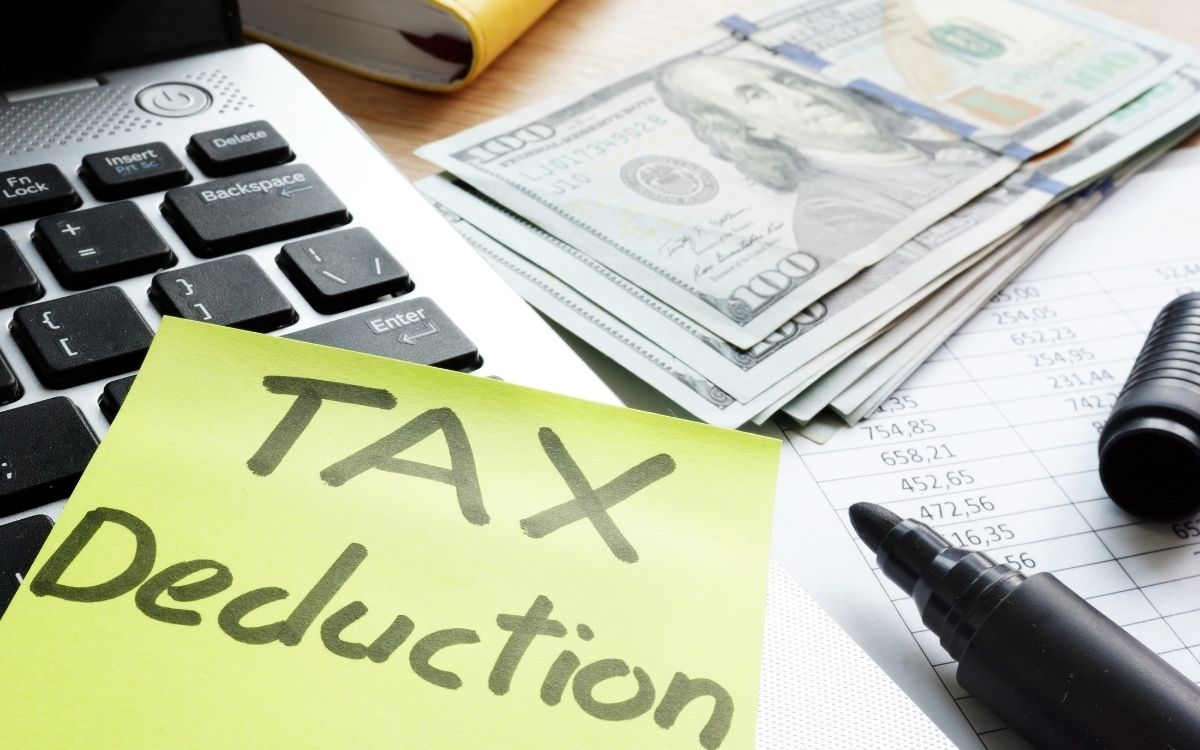Filing your taxes in the United States is a complicated and confusing process and it is no wonder most Americans rely on tax professionals and tax preparation software to help them navigate and prepare their tax filings each year.
There are many deductions that tax filers can take for different expenses throughout the year, but did you know there was a deduction specific for teachers and educators? Teachers often have out-of-pocket expenses related to their job and their classroom and these expenses may qualify them for a special tax deduction.
Qualifying educators in the United States may be eligible for an expense deduction, called the Educator Expense Deduction, which according to the Internal Revenue Service (IRS) entitles the qualifying educator to “deduct up to $250 ($500 if married filing jointly and both spouses are eligible educators, but not more than $250 each) of unreimbursed trade or business expenses.” Knowing that educators may be asking, what are qualified educator expenses?
According to the IRS, qualified educator expenses are “unreimbursed trade or business expenses” paid by the qualified educator. These expenses are “amounts you paid or incurred for participation in professional development courses, books, supplies, computer equipment (including related software and services), and other equipment, and supplementary materials that you use in your classroom.”
What Are the Most Common Qualifying Educator Expenses?

The most common qualifying educator expenses are expenses one has as a qualified educator that were used in the educator’s classroom for instructional purposes. The maximum amount an educator can deduct is up to $250 on 2021 tax filings.
Common examples of qualified educator expenses are purchases such as:
- Professional development courses and related fees to improve one’s teaching abilities and instruction
- Teacher professional development books and professional resources
- Classroom library books and books used for instruction, like classroom sets of books for instruction
- Curriculum materials, such as content specific curricula that are purchased outside of what is provided by the school
- Classroom supplies used by students in the classroom, like pencils, art supplies, notebooks, paper, folders, calculators, etc.
- Classroom supplies used by you, the teacher, in the classroom, like printer ink, whiteboard markers, classroom organization items, etc.
- Classroom furniture items or decor items used in the classroom
- Computer equipment, like headphones, webcams, necessary accessories, charging stations, etc.
- Educational software and services
- Other supplementary materials
- Athletic supplies for physical education classes
Qualifying expenses now also include supplies used to prevent the spread of Coronavirus (COVID-19) such as:
- Personal protective equipment (PPE) such as masks and face shields, sanitizer, and barriers like a plexiglass divider
- Disinfectant and cleaning supplies
- Air purifiers
- Items needed for social distancing, like floor distance markers, tape, etc.
What Expenses Do Not Qualify as Qualifying Educator Expenses?
There are some expenses that do not qualify as qualifying educator expenses for this deduction. First and foremost, any expenses made by the educator that has been reimbursed for by their employer, including the above-mentioned approved list of expenses, are not qualified expenses if the educator has received reimbursement for their purchase. Qualifying expenses are unreimbursed out-of-pocket expenses only.
For example, if a teacher registers for a professional development course and pays out-of-pocket and is then reimbursed by the school they work at for the cost of the course, those expenses do not qualify. Additionally, if an educator paid for any expenses with a grant, funds provided by a PTA or similar school organization, or scholarship, those would not be qualifying purchases either.
If you are a qualifying educator who is offered any of these reimbursement opportunities, it is important to keep track of your spending and what is ultimately reimbursed to you so you can determine your true out-of-pocket expenses and the final amount you can deduct from your taxes.
Who Qualifies as a Qualified Educator and Who Does Not Qualify?

According to the Internal Revenue Service (IRS), a teacher is a qualified educator eligible for this tax deduction if they:
- Are a kindergarten through 12th-grade teacher, counselor, principal, or teacher aide
- Have worked at least 900 hours in a school that provides elementary or secondary education as determined under state law, including both public and private schools
For reference, 900 hours is the average amount of hours worked by a full-time employee during one academic school year.
You are not a qualified educator and would not qualify for the deduction if you are an employee of a preschool or daycare, you are a homeschool teacher or tutor, you teach adult education courses, you are a coach of a sports team, or you teach or are employed by a college or university.
How Do You Deduct Qualifying Educator Expenses?
First, one looking to utilize this deduction needs to determine if they meet the above qualifications of a qualified educator. Next, they would need to compile receipts or look at their expenses as an educator over the year they are filing taxes and determine if those expenses are qualified expenses, ensuring they have not been reimbursed for any of those expenses. Once those requirements are met, that qualifying educator can utilize the deduction on their tax filing, up to $250.
As with any tax-related question, questions related to this deduction and others, such as if a purchase qualifies, can be answered by qualified tax professionals or by consulting the Internal Revenue Service (IRS) website.
What Are Some Tips for Keeping Accurate Records for the Educator Expense Deduction?
Some tips for maintaining records of qualifying education expense deduction purchases as an eligible educator are:
- Maintaining a file or folder of physical receipts for items that have been purchased that qualify for this deduction
- Keeping a dedicated email folder of digital receipts for items purchased through online retailers
- Make sure to keep track of any reimbursements received from one’s employer, grants, or school organizations for items purchased
Is $250 a Fair Amount for the Educator Expense Deduction? Can Teachers Deduct More Than $250 in the Future?

Many educators spend way more than $250 per year on expenses related to their classroom and their jobs as educators and some would argue whether $250 is an appropriate amount when teachers are investing their own money back into the education of students and are often not reimbursed for these purchases.
Another concern is the effects of the Coronavirus (COVID-19) pandemic on educator out-of-pocket expenditures. Despite educators having to manage the effects of the global Coronavirus pandemic on their classrooms, this deduction has not increased for 2021 tax filings even though the financial demands have increased.
Teachers have found themselves responsible for purchasing virus protection supplies, such as personal protective equipment (PPE) and sanitizers, as well as extra supplies to implement social distancing in their classrooms. Those schools that implemented distance learning or remote schooling have educators who have possibly incurred expenses related to home office supplies, internet bills, and phone bills.
Unfortunately at this time, the maximum amount possible to deduct for this specific deduction remains $250 on federal tax filings for 2021 and earlier.
In exciting news for 2022 filings, teachers will be able to deduct $300, a $50 increase! The same requirements as before still apply.
Related Articles
- Educators File Federal and State Taxes with TurboTax for $0!
- The 5 Best Tax Software Programs for Teachers in 2022
- Can Teachers Make a Good Living?
- Do Teachers Get Pensions?
- Free Tax Filing for Teachers from FreeTaxUSA!




